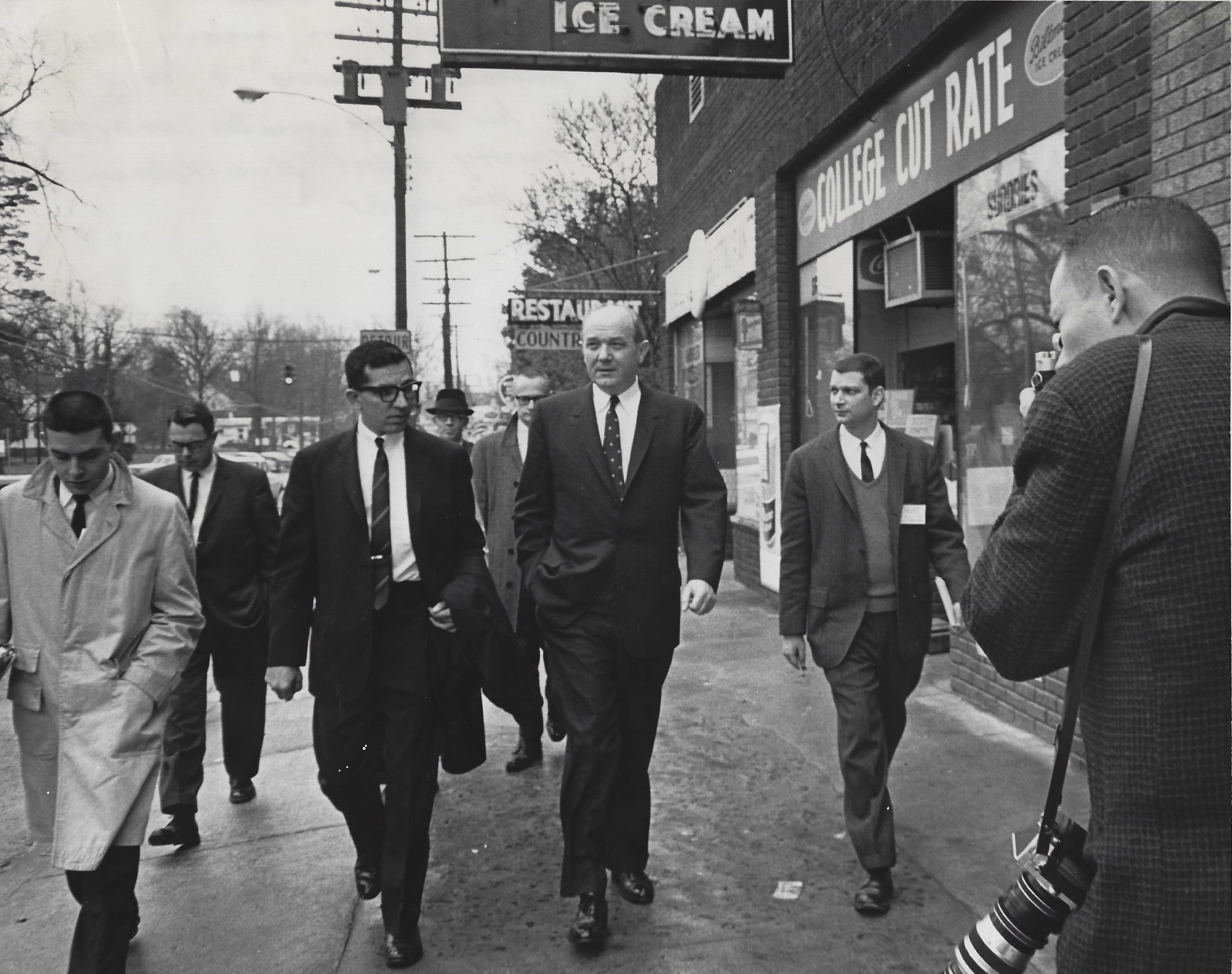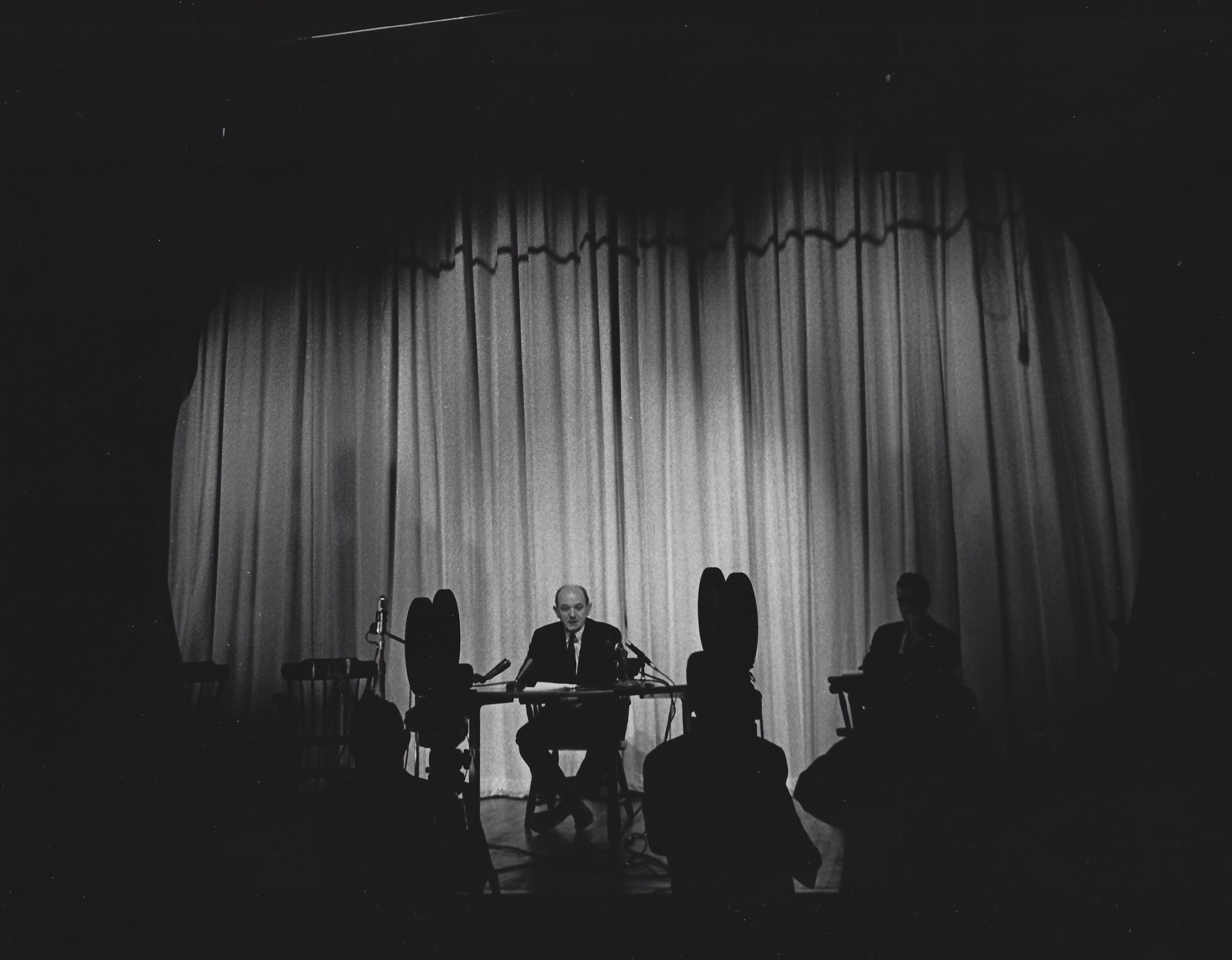
While David Dean Rusk was often berated by the media, he proved able to separate his own experiences with newscasters as a political figure from the ones he experienced as an American citizen. News media was not only growing as a competitive industry but was also playing an increasingly important role in political affairs. Rusk, however, felt as if they fell short of their new responsibilities:
One problem I have is that the very answer given by the news media to the question ‘What is news?’ cannot help but give us a distorted picture of the real situation and the real world. For example, I can tell you with complete accuracy today that the overwhelming majority of international frontiers are peaceful [….] But if that is not your impression it is partly because agreement, normality, serenity are simply not newsworthy.
Dean Rusk, Fall Convocation 1985, 1:05:17
News cycles more often than not emphasized unrest and upheaval. Rusk claims that about eighty percent of the work in the U.S. State Department goes unreported by the press as it is simply maintaining the good international relationships that have been in existence.

News media rarely gave topics of international importance the space and time that was necessary to fully comprehend the stories told.
“All the limited column inches in a newspaper on the limited breathless moments on radio and television news. So you’re always snatching at fragments of problems which might require much more time to put into any context.”
Dean Rusk, Chapel Talk
These fragments — headlines and descriptors — force consumers to react instantaneously and form implicit attitudes. Rather than providing informative reports, news outlets began to construct their own evocative narratives to boost their ratings. Rusk was particularly critical of the ABC television network’s choice to broadcast a film depicting nuclear disaster in America without any disclaimer. On November 20, 1983, The Day After was viewed by over 100 million Americans, reinforcing the fear of an inevitable nuclear war. Rusk points out how careless ABC was to frame a dramatization as a prediction. He explains,
“I personally think that ABC has a duty to have one of its top newsman come on at the very beginning of that show, and remind us that we are put behind us 38 years as a nuclear weapon has been used, and that they can find no situation present in the world today, which seems to be pointing toward a nuclear war.”
Dean Rusk, Fall Convocation 1985, 1:05:17
Regardless, Rusk had faith in the news media to educate the American people. He claims,
“I think that the American people are overtime far better informed, more accurately, and in broader context than the people of any other country I know about.”
Dean Rusk, Dean Rusk Speech – Atlanta, 38:15
Perhaps this confidence comes from knowing the threat of communism and believing in democracy. Today, however, Americans are generally suspicious of media sources, especially those that have an established political identity. The news media will have to reevaluate its content and delivery if it wants to reestablish its credibility as an educator of the American people.
Digitization and transcription funded courtesy of the Dean Rusk Program for International Studies. This blog post was written by Michaela Gibbons ’22. To listen to these interviews, browse the Dean Rusk Collection in Digital Davidson.

In the first picture, the man wearing glasses to the left of Dean Rusk is Gus Peleuses. He was the security officer for Secretary Rusk during the Kennedy and LBJ administrations. He was an amazing man who I was proud to call my uncle.